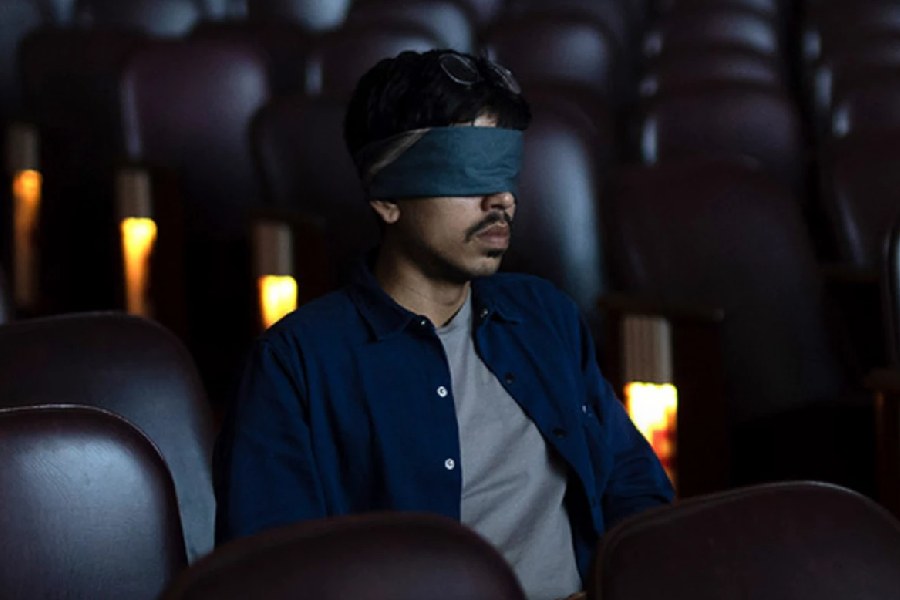Long before Superman’s lip-lock faced the CBFC axe in India, filmmaker Varun Grover had already seen it coming.
DC chief James Gunn’s recently released Superman opened to rave reviews globally on July 11, with many calling it one of the best Superman movies to date.
In India, however, the debate deviated from the film to a kissing scene snipped by the Central Board of Film Certification (CBFC). About 30 seconds of the kissing scene, a symbol of Clark Kent and Lois Lane’s love, never made it to Indian theatres.
Why? CBFC thought it was too long.
Grover, known for working on cult movies like Gangs of Wasseypur and Masaan, offered a reflection of CBFC’s latest cut to a Hollywood film in his debut short back in 2022.
Titled Kiss, the 17-minute-long film manages to mirror what CBFC enacted in real life this month.
The plot of Kiss is simple. A young filmmaker, Sam (Adarsh Gourav), is screening his debut film to two CBFC examiners. The bone of contention? A kiss between two men.
First, we hear the sound of it. Then the questions begin. “Is this scene necessary?” one of the examiners asks. Sam is defiant: “Why should an artist have to explain why?”
The examiners try to time the kiss. One says it lasted 28 seconds. Another says over two minutes. A third sees it as even longer. The same scene plays on repeat, slightly different each time. The theatre lights flicker. The projector glitches. What starts as a routine screening soon turns into heated debate.
Grover slowly peels back the layers of his CBFC officials in the film. One is steeped in traditionalist discomfort. The other is haunted by personal trauma. They are not heartless — they are hurt.
The film suggests that censorship often comes from fear of confronting one's own desires or traumatic past.
Kiss is not just about the CBFC, though. It’s about how we watch, the emotions we suppress, and who gets to decide what love looks like.
The queerness in the film isn’t explained or labelled — it’s just there. Two men kiss, and that’s it. No tragedy, no apology, no punchline. In an industry that often treats queer love as a “topic” or a plot twist, that quiet normalcy is a radical act.
The film feels especially timely now. Grover has said he was inspired by a real-life incident where the CBFC asked for a kiss in Spectre to be cut down from 22 seconds to 11.
This prompted him to ask this question out loud: who decides how many seconds of intimacy are allowed? What exactly is being protected by cutting down a kiss? And why are we so uncomfortable with affection, especially when it breaks the straight-and-narrow mould?
When the kiss is finally shown on screen, it’s not shocking or bold. It’s gentle. Real. And in that moment, the viewer is drawn into the conversation as the fourth person in the conversation. How long did it feel to you? And why?
At a time when mainstream Hindi cinema is overrun with angry, macho heroes who punch first and think later, Kiss offers a reality check. And it does so with care.
Kiss is streaming on Mubi India.











